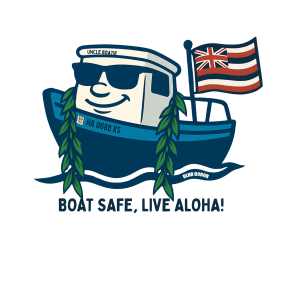How to Dispose of Your Vessel in Hawaiʻi
Posted on Apr 27, 2023 in MainLOOKING TO DISPOSE YOUR VESSEL?
-
If your boat is documented with the U.S. Coast Guard, please contact the Coast Guard for more information.
-
If your boat is registered with the Department of Land and Natural Resources (DLNR), please contact Vessel Registration.
-
If you have a trailer, please contact the City & County of Honolulu DMV.
Boats wear out, get damaged, or simply sit unused. When repair costs outweigh the value, it may be time to let go. Proper disposal matters. Boats contain hazardous materials (oil, batteries, solvents) that can harm the environment. It’s illegal to:
-
Remove or destroy the Hull ID Number
-
Abandon, sink, or set a vessel adrift
Abandoned/derelict vessels become dangerous marine debris that pollute the ocean and threaten marine life.
Hawai‘i is a title state. All registered vessels must have a title, which helps DLNR track ownership and hold owners accountable for abandoned vessels.
No state disposal program exists. Owners are responsible for selling, donating, giving away, or hiring someone to dispose of unwanted vessels.
Before disposing of your vessel, download and review the DLNR/DOBOR Change of Status form to know what must be reported once the process is complete: Click here for form.
SELLING A VESSEL
If your boat still has value, selling it is a good option. You can list it on Craigslist, eBay, in the newspaper, or other marketplaces. But don’t just hand it off and walk away—make sure the buyer completes the registration transfer and requests a new title.
If the transfer isn’t done, you could still be held responsible if the boat is abandoned, grounded, or dumped after the sale. Protect yourself by ensuring the paperwork is done correctly.
DONATING A VESSEL OR GIVING IT AWAY
The same rule applies as when selling: always make sure the registration and title are legally transferred to the new owner. Some charities accept donated boats, but you’ll need to research which ones will take yours. A donation may also qualify for a tax deduction. Examples include:
-
CharityBoats.org (accepts motorboats, sailboats, yachts, trailers, Waverunners)
-
The National Kidney Foundation
-
Local programs such as the Marine Education Training Center (Oʻahu), which has used donated boats for vocational training.
You can also advertise a free boat in newspapers, on Craigslist, eBay, or through community flyers. *It is not practical to donate a boat for use as an artificial reef. This requires large vessels, special conditions, and multiple permits.
DISPOSING OF A VESSEL BY YOURSELF
You can no longer simply strip a small boat and push it into the landfill—at least not on Oʻahu.
-
H-Power option (Oʻahu): The plant may accept boats if they are:
-
Completely cleaned of hazardous materials (oil, fuel, batteries)
-
Cut into 3-foot sections (the size their grappling hook can handle)
-
Delivered to the incinerator
Expect tipping fees, and always call H-Power first to confirm current rules. Cutting fiberglass also requires care to avoid harmful dust.
-
-
Neighbor islands: Contact your County Waste Management office. In some places, cleaned boats may still be accepted at the landfill.
Important: Dispose of all boat parts properly, and take photos of the dismantling for your records. Never scuttle or sink a boat—this is illegal, damages reefs, litters shorelines, and carries heavy fines.
COMMISSIONING DISPOSAL
Perhaps the most expensive but most thorough method for disposing of a vessel is to commission an entity to dispose of it properly on your behalf. This would mean that the disposal is conducted in an environmentally sound manner and in accordance with all pertinent laws. Just make sure the vendor is properly licensed and you receive evidence that the job is done. There have been instances where a vessel, thought to be demolished, was taken from a dumping ground, rebuilt and re-registered. This was proven by the HIN on the vessel.
Sometimes, a vessel made of metals (steel) can be recycled. You may be able to reduce the cost of the disposal by the value of the recycled, raw materials.
Take pictures of your boat cut up and dismantled for records that will need to be provided.
AFTER THE FACT
When you sell, donate, or give away your boat, you must transfer the title and ensure the new owner re-registers it within 10 business days.
If you dispose of or destroy your vessel, you must file a Change of Status form with DOBOR within 5 business days. Include photos showing the hull cut up, crushed, or otherwise made unusable—DOBOR may reject the form without proof. Forms are available at: DOBOR Forms Page.
For trailers, disposal and registration are handled by the County DMV, not DOBOR. Contact your local DMV to update or cancel trailer registration.
FOR THE FUTURE
DLNR/DOBOR requires vessel owners to be responsible throughout a boat’s life—especially at the end of its use. Rules on titling, registration, numbering, insurance, education, Hull ID numbers, and Hawaiʻi’s 72-hour rule all help prevent boats from being abandoned. If these measures aren’t enough, DOBOR may need to add fees or other methods to cover the cost of removing abandoned vessels. The best solution is responsible disposal by every owner.

